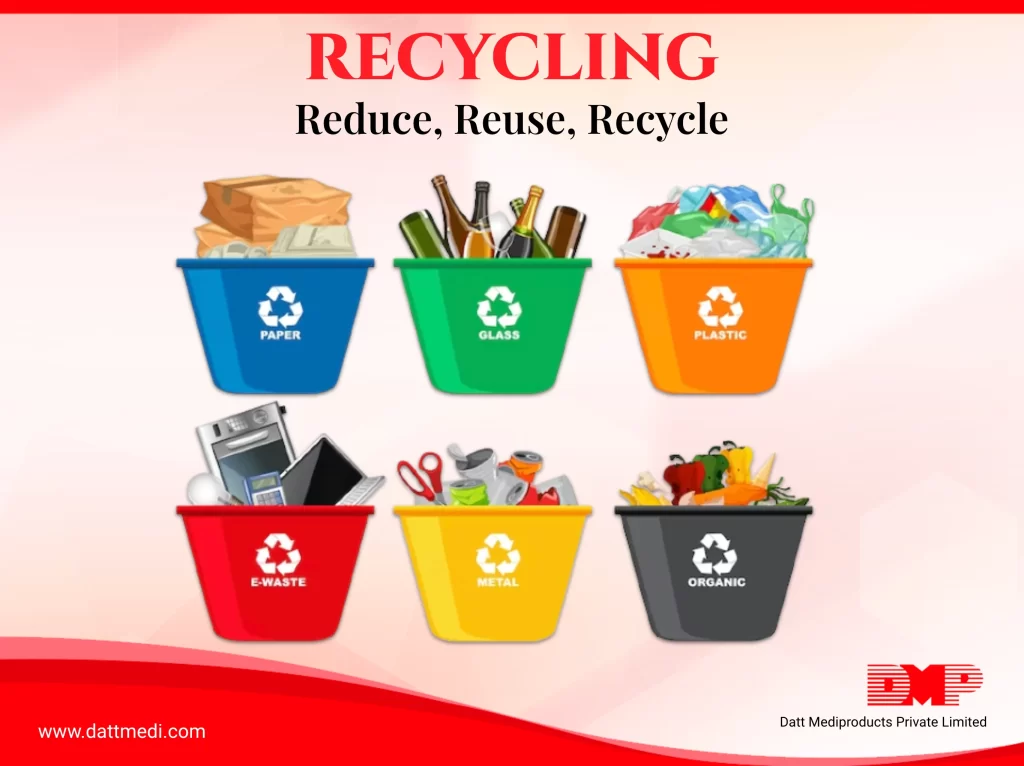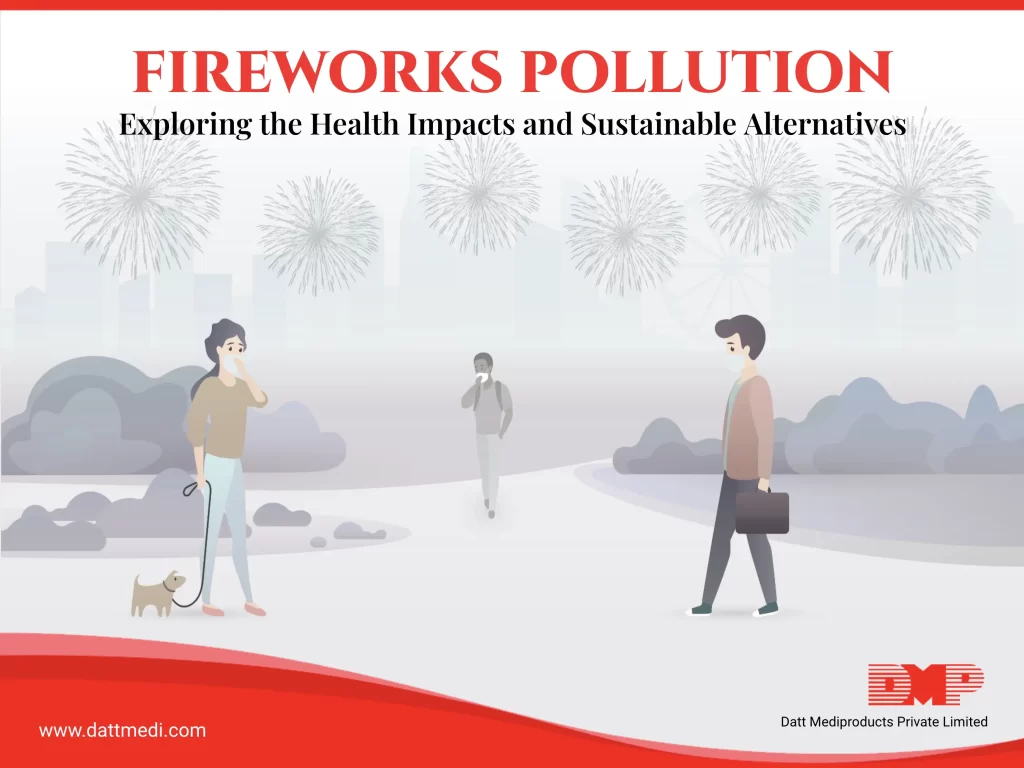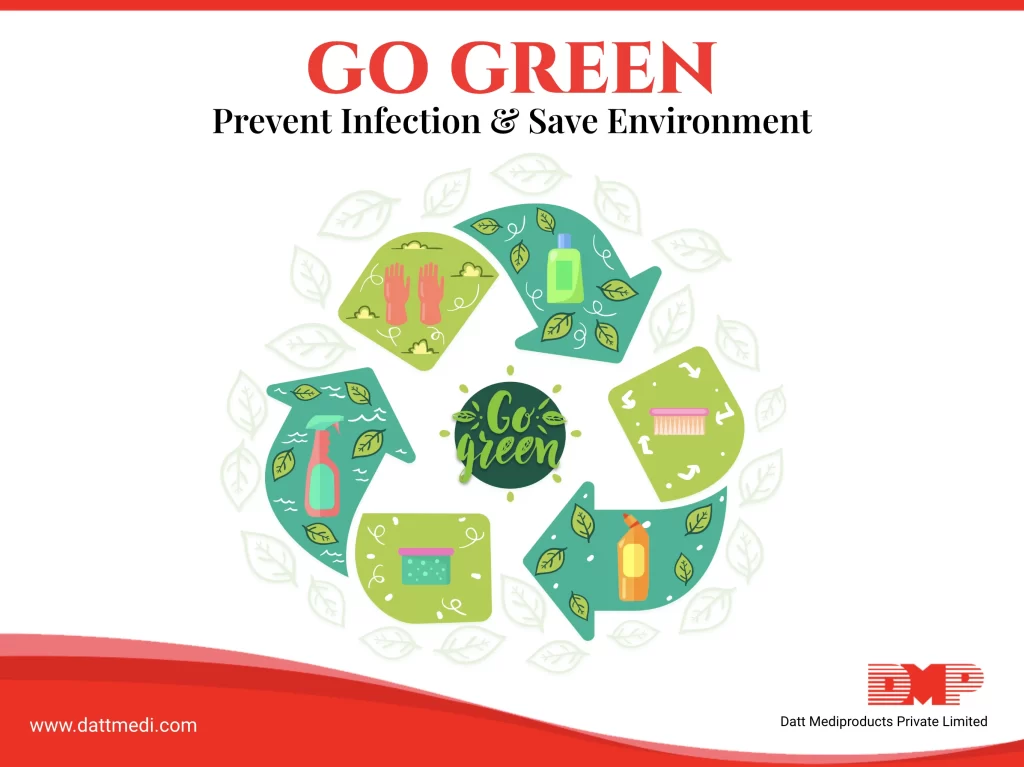
Recycling is the procedure of processing materials that would otherwise be thrown as trash and reusing them by turning them into new products. In short, recycling converts the waste materials into reusable objects. Recycling can be considered as a key component of modern waste reduction and it stands as third element in “Reduce, Reuse and Recycle” waste hierarchy.
Recycling is important as it:
- Keeps the environment clean
- Reduces air and water pollution
- Brings down the amount of waste produced
- Prevents landfills and incinerators from getting overloaded
- Saves Energy
- Creates new job opportunities
- Restricts the chase for new raw materials
The Common Recyclable Items are as below:
PAPER & PAPER PRODUCTS
It can be easily repurposed countless number of times in the recycling world. Corrugated recycled cardboard, wood chips, saw dust can be used to make items like tissue papers, poster boards, cereal boxes, shipping boxes etc. Magazines, office papers, newspapers can also be recycled very easily saving high production costs and energy to produce new items.
METALLIC ITEMS
We use in daily life such as aluminum foil, steel & tin cans can be recycled. It is documented that recycling metal saves a lot of energy. It consumes 70% less energy than it takes to produce a completely new item.
Apart from these GLASS, PLASTICS, CONCRETE, STEEL, and ELECTRONIC ITEMS such as computers, stereos, mobile phones, batteries, televisions etc. can be recycled.
After collection these items are sent to recovery facilities where these can be sorted, cleaned and processed into various kinds of raw materials. Various govt. run facilities, start-ups or non-profit organizations provide scheduled recyclable collection at your doorstep and adding zero to landfills.
Some Recycling Facts to Ponder:
1. As per the data published in the International Journal of Environmental Science and Technology, article titled “Plastic waste recycling: existing Indian scenario and future opportunities”, India recycles 94.17% of waste plastics through mechanical recycling, while 0.93% is chemical or feedstock recycling and 5% for energy recovery and alternative uses such as making roads, boards, and tiles.
2. As per an article published in International Solid Waste Association, India generates an estimated 960 million tonnes of waste a year with the recycling rate being low for solid waste. The Indian Central Pollution Control Board reports that about 70% of solid waste is discarded in landfills illegally in an unregulated manner thereby endangering the drinking water.
With the increasing wealth and the ability to spend more, people are buying more products and creating more waste. With lifestyle changes, new packaging materials, technological products, eating fast food etc. create additional waste which is not biodegradable. It becomes imperative to introduce and follow recycling through regulated means to have a positive impact on the world in which we live. Now let us understand the far reaching benefits of recycling on our environment, economy and people.
The Economic Benefits:
1. In recycling everything is a resource and not a waste so it contributes to a circular economy as it costs lesser than waste management (both collection & disposal).
2. Properly run recycling programs can create more job opportunities annually. Studies show that for every one job created in the waste management industry, recycling creates four.
3. Creates new business opportunities such as collection, transportation, processing, manufacturing, packaging and selling of recycled products.
4. With a cleaner environment, tourism industry could also boost attracting environmental enthusiasts from around the world.
The Environmental Benefits:
1. Recycling can prevent landfills from getting overloaded, saving space for garbage that can’t be repurposed.
2. Air pollution can be reduced from the landfills which emit methane, a powerful greenhouse gas.
3. With recycling the hunt for new raw materials: their extracting, refining & processing can be reduced drastically, which again could contribute to both air & water pollutions.
4. Recycling saves energy as compared to waste management or producing new products from raw materials, again reducing greenhouse gases emission, thereby tackles climate changes.
5. Recycling conserves natural resources like minerals, trees by avoiding their extraction via mining and forestry. In addition, also protects the natural habitats & preserves these resources for future generations.
We @dattmediproducts understand that recycling holds back litter overflow to minimum levels keeping the Earth looking beautiful. Because, together we can make a difference.
Follow us @dattmediproducts or visit our website www.dattmedi.com for more updates.




